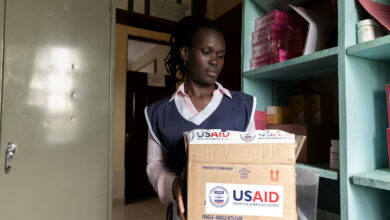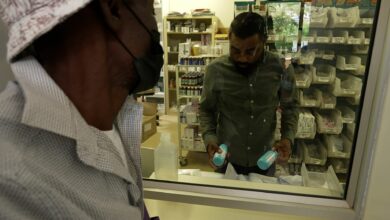
AIDS researchers released a call to action for a worldwide shift in HIV treatment, to providing medication immediately after diagnosis instead of first watching for signs of illness to appear.
“Immediate antiretroviral (ARV) treatment more than doubles an individual’s prospects of staying healthy and surviving,” says the Vancouver Consensus, a statement signed by leading AIDS scientists and officials at the opening of the International AIDS Society (IAS) conference, in this western Canadian city.
Scientists say new research to be presented at the conference shows immediate treatment prevents infected people from passing on the infection, while other reports showcase that preventive therapy “can effectively protect people at risk of infection through prophylactic use,” says the statement, signed by heads of the International AIDS society, UNAIDS and funding agencies.
The last global AIDS meeting in Vancouver, in 1996, marked a breakthrough: research showing that triple-combination antiretroviral treatment worked. The findings meant that instead of an HIV diagnosis being an almost-certain death sentence, it became possible for an infected person to live a normal life while on treatment.
Researchers are hoping that this meeting, the new treatment procedure can spark a similar result in HIV treatment.
“Vancouver is going to make history again,” says conference co-chair and researcher Julio Montaner. “Because prevention will be definitely established at this conference as the new standard of care.”
Other research will show it is possible to decrease HIV transmission rates by 95%.
“We now have the opportunity of ending the pandemic,” says Montaner, challenging politicians to support treatment.
“Leaders of the world, you’re either with us or against us. We know the evidence. It’s up to you as to whether you will be counted as doing the right thing.”
He read out a letter to the conference from the Vatican promoting treatment and prevention.
“If the pope gets it, everybody else should,” Montaner says.
Michel Sidibe of UNAIDS says investments in HIV diagnosis and treatment pay off, and noted the world had beat its goal of having 15 million of the world’s 35 million people diagnosed with HIV in treatment by 2015.




